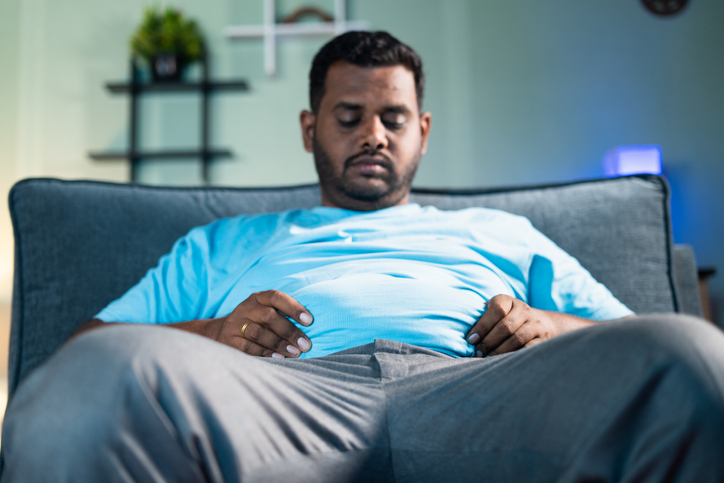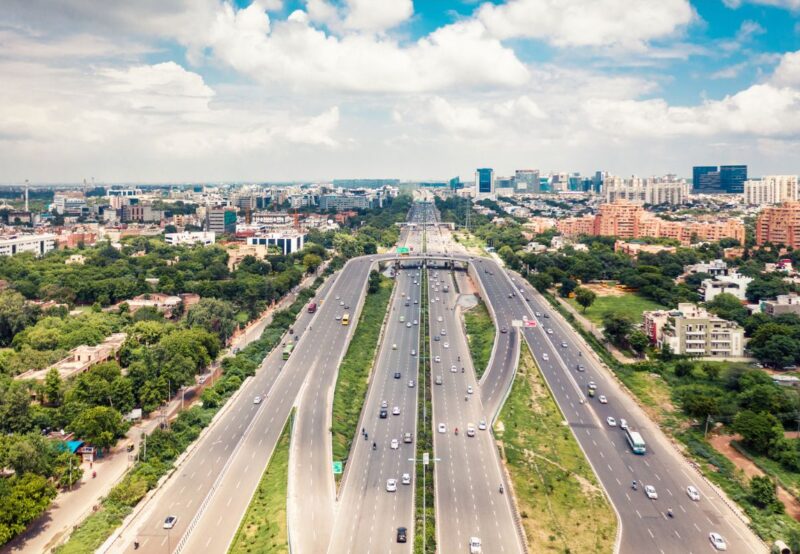The pandemic has had many far reaching effects in the capital, now with changing lifestyles, obesity is reaching a crisis stage as per the National Family Health Survey 2020-21
The Union Territory of Delhi is racing towards a health crisis if the recently released National Family Health Survey 5, 2020-2021 is any indication. According to the NFHS 5, obesity amongst adults in Delhi NCT has increased significantly since the last survey from 2015-16. While Covid-19 has received the bulk of the attention these last two years, obesity as is reflected by the data has been ignored as a health crisis for some years now.
According to the findings, the percentage of men who are overweight has increased from 24.6% in 2015-16 to 38% in 2020-21. The percentage of women too has increased in the same period. It was at 33.5% in 2015-16 but has now increased to 41.3%.
The survey for the first time included the high risk waist-to-hip ratio and that too is alarming according to the data. The percentage of high risk waist-to-hip ratio amongst women is 67.7 and amongst men it is 61.8.
As per Union Territory, Delhi NCT fact sheet, the “fieldwork for NCT Delhi was conducted from 4th January 2020 to 21st March 2020 prior to the lockdown and from 21st November 2020 to 20th January 2021 post lockdown by Population Research Centre (PRC), Institute of Economic Growth (IEG). Information was gathered from 9,486 households, 11,159 women, and 1,700 men.”
According to experts this rise could be attributed to Covid 19. In the last two years Delhi has been put under lock down a number of times which has meant that there has not been much physical activity. But some experts say that since the rate of obesity amongst adults was high even in 2015-16, Covid is not the only reason for this increase.
Dr, Anjana Kalia, an Ayurvedic doctor and a nutritionist practising for sixteen years told Patriot that Covid-19 surely has had a role to play in increasing obesity amongst adults. She said, “With work from home being the norm in the last two years, and with increased screen time, the lifestyle of people has changed, people are stressed out and they are not sure what they are eating, when they are eating, this has resulted in an increase in obesity amongst adults.”
Dr. Hemi Soneja, a Diabetes Specialist & Obesity Doctor at Max Smart Super Speciality Hospital, Saket, Delhi with over 16 years experience echoes the thoughts shared by Dr Anjana.
She says, “it is not only about a decrease in physical activity but also a complete change in peoples’ lifestyle and their food choices. People have been making all kinds of food these last couple of years at home but not always the food cooked at home is healthy. Another factor is that portion sizes have increased and people are comfort-eating, stress-eating, these are the reasons that could be attributed to this increase in obesity.”
Dr. Soneja also pointed out that the increase in obesity can also be due to an increase in the cost of healthier foods and a decrease in the price of junk food. She cited the example of difference in the prices of items at fast food restaurants and a store which serves healthy sandwiches.
Obesity can lead to severe health problems which include hypertension, diabetes, cardiovascular diseases etc. In women specifically it can lead to irregular menstrual cycle, reproductive issues etc. As per Dr Soneja, “Due to obesity women start having issues quite early in their lives, right from their teenage years. Obesity could create issues with pregnancy, it could also lead to infertility.”
For men, obesity could lead to cardiovascular issues, diabetes etc. Dr. Soneja points out that it is not always about the weight of the body, it is also important where that weight is distributed, hence waist-to-hip ratio is an important indicator. The higher waist-to-hip ratio indicates metabolic problems.
Dr Anjana says that it is not difficult to maintain good health at home if people are pro-active. “One always need not to go to the gym for two hours, even if people get up every hour to get their glass of water, it is enough cardio activity for the day, making slight changes to lifestyle is enough.”
(Cover: Getty Images)





